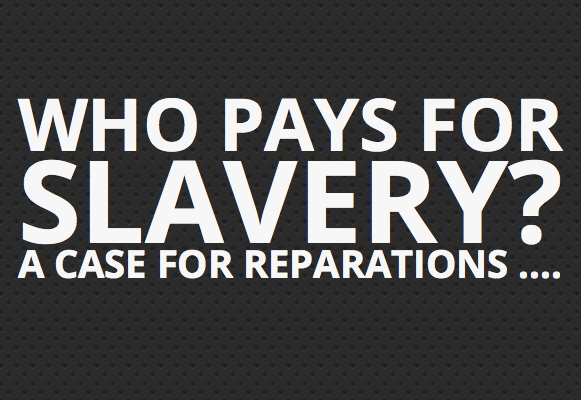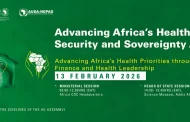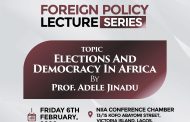Might the reparation movement be moving to African campuses and become more rugged as is hinted in this piece from World Universities News?
African universities are driving initiatives to build on a declaration by the African Union (AU) of 2025 as the ‘Year of Justice for Africans and People of African Descent Through Reparations’.
In South Africa, the University of Pretoria is leading efforts to create an alliance of universities to tackle the issue of reparations with a suggestion to constitute a Pan-African Higher Education Reparations Fund.
Professor Frans Viljoen of the university’s Centre for Human Rights told University World News that the University of Pretoria partnered with the University of the Bahamas in the Caribbean, as well as the French-medium University of Goma in the Democratic Republic of the Congo to work on the reparations initiative.
Viljoen said the immediate goal was to publish peer-reviewed articles to strengthen the voice of African scholars in the ongoing discussions about reparations in Africa as too often through research, publications, discourse, awareness-raising and other strategic measures, these debates were still dominated by scholars from other regions of the world.
“We intend to work on forming an alliance, including a broader group of universities, to stimulate research and a public debate on this issue,” said Viljoen.
He said a conference, the ‘African-Caribbean Dialogue on Justice through Reparations’, was hosted from 2-3 June 2025 at the University of Pretoria’s Future Africa campus which came up with a number of resolutions that included the need for university collaborations through research, publications, discourse, awareness-raising and other strategic measures.
The conference also resolved to urge the AU to consider providing institutional support to those taking forward legal claims, and to fund research efforts that document and build out an African understanding of historical wrongs.
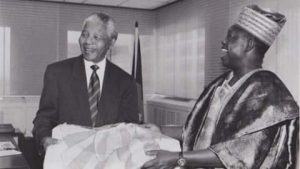
Late Chief Abiola, a reparation ideologue with also late Mandela
Viljoen said as part of tackling the issue of reparations, African universities may enter into partnerships or forge ‘institutional twinning’ with universities in countries from which slavery was launched and which benefited from slavery.
“These could include universities in the United Kingdom (Edinburgh, Glasgow); in the United States (Harvard); in France (Nantes) and Portugal (Coimbra, Lisbon, Porto),” he added.
“The question is often posed how reparations can be made ‘payable’ so many centuries after the event. One way is the stabilisation of a Pan-African Higher Education Reparations Fund, to which countries – or other universities – in countries like the UK, France, Portugal, Spain and the US – and any other – can contribute.”
He said lecturers at all African institutions of higher learning have to stimulate students in all disciplines to explore in-depth research on this often-neglected topic.
“New scholarship has to inform a new and better-informed rewritten history of the effect of the transatlantic enslavement of Africans, in Africa itself,” he added.
Building a cohort of postgraduate students
Khanya Motshabi, a senior lecturer in public law and the strategy lead at the University of the Free State’s Africa Reparations Hub, told University World News that the hub, launched in 2023, has five strategies.
The strategies are academic forums, research and publications, legal and human rights education, advocacy initiatives and information archiving.
Motshabi said academic forums cover meetings such as conferences, colloquia and seminars. As an example of the work they have conducted, they held a seminar under the title ‘reparative justice as decoloniality’ in 2023.
“We are assembling a book on guidelines for Africa’s reparations under a contract with a reputed international publisher. So that’s the area of research and publication,” he said.
He added: “We had a colloquium on mainstreaming reparative justice in African legal education. We are also doing some postgraduate student supervision and the hub has two students working on reparations, mainly in the context of international law.
“So, we are looking forward to those PhDs rolling off over the next year or two and to build up a bigger cohort of postgraduate students, both at doctoral and at masters level.”
Motshabi said the colloquium held with law schools at the University of Ilorin in Nigeria, Strathmore University in Kenya and South Africa’s University of the Western Cape came up with a 10-point plan to mainstream reparatory justice in legal education in Africa.
The 10-point plan stresses the need for African agency in knowledge production, diversified knowledge economies and the facilitation of a research dynamic that represents the interests of Africa’s people, including their vision for reparatory justice.
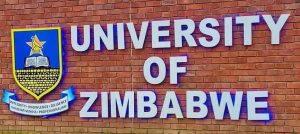 Zimbabwe’s study
Zimbabwe’s study
In Zimbabwe, a number of universities are involved in an academic study launched by Zimbabwean President Emmerson Mnangagwa on the impact of colonialism on the African country that will culminate in a demand for reparations from former colonial power, Britain, which University World News reported on in 2024.
Academics involved in the presidential initiative are vice-chancellors at Zimbabwe’s universities, including University of Zimbabwe Vice-Chancellor Professor Paul Mapfumo.
Student perspective
The Secretary-General of the All-Africa Students Union Peter Kwasi Kodjie told University World News that higher education is one of the most strategic areas where reparative justice can translate into transformative justice for young Africans.
He said the AU projects that by 2030 the continent will have the largest youth population in the world, yet gross tertiary enrolment hovers around 12% compared to a global average of over 40%.
“Reparations could fund scholarships, digital learning systems and inclusive financing schemes that drastically expand access, especially for women, rural populations and marginalised groups,” he said.
Reparations are not just financial, but also include intellectual justice, hence resources could support curriculum reforms that decolonise knowledge production, embed African perspectives in teaching, and recover indigenous knowledge systems to ensure that Africa does not only import frameworks but produces ideas that shape the world, Kodjie added.
He said youth unemployment remains a crisis, with over 10 million to 12 million young Africans entering the labour market each year against three million formal jobs created. As such, he added, reparations could be channelled into innovation hubs, entrepreneurship training, and partnerships between universities and industries to convert education into real economic empowerment and address the structural inequalities that colonial exploitation entrenched.
A mirror to an imperial past
Dr Ueli Staeger, an assistant professor of international relations at the University of Amsterdam, told University World News that there is resistance to the reparations agenda by Western status quo-oriented countries and actors motivated by a number of arguments, including neocolonial arguments about Africa’s inability to administratively and politically handle a potential reparations process.
He said legal departments in European foreign departments are fearful of a knock-on effect: one reparation case could lead to many more. Staeger said reparations are practically possible, if there’s political will.
“As such, calls for reparations do already make a difference in that they hold up the mirror to Europe’s continued discomfort about its imperial and colonial past. This symbolic dimension of the reparations agenda cannot be understated,” he said.
Staeger said higher education institutions in the West have responsibilities at multiple levels; dealing with their own dark past should go hand in hand with well-designed and co-owned education partnerships without neocolonial dynamics of ‘teaching Africans’.
He said this also requires these universities to face Western governments more courageously than has recently been the trend in the US and Europe.
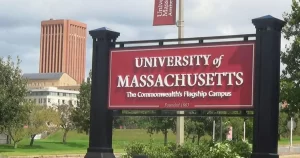 Why states don’t want to consider reparations
Why states don’t want to consider reparations
A 2025 study published in the Review of international Political Economy whose lead author is Adam Lerner, an associate professor of international relations at the University of Massachusetts Lowell, offers insights into why the reparations agenda has achieved little and may likely continue so.
It notes that just a few cases have dealt with wrongs associated with imperialism and no state has yet paid for injustices related to the slave trade.
The study gives reasons for this. Even when a powerful state offers reparations to a weaker one, they cannot be assured that political shifts will not facilitate claims’ reopening, or that third parties will not exert pressure for further payments.
“Indeed, given the immensity of global injustices like slavery and imperialism, it is unlikely that any one-time financial package could address all potential grievances and therefore any settlement will likely remain contested.
“Second, and relatedly, because of the complexities involved in representing mass violence on the international stage, international reparations agreements necessarily exclude interested parties – whether they are individuals, groups or other states – leading to outstanding grievances with the potential to resurface and shape state action anew,” the study says.
“Thus, international reparations often achieve the opposite effect, inspiring further financial claims. In some cases, states might willingly recognise wrongdoing or offer aid separately, but fear joining them as international reparations would open a spigot difficult to close.”
It said that though, in theory, international reparations can be a powerful tool for addressing global inequalities resulting from historical injustice, for them to be effective, states must consider novel approaches to addressing issues of finality when it comes to payments.
It also said many victims do not survive historical injustices to claim reparations and thus descendants of victims or state representatives may be best positioned to receive reparations.
“But while transferring rights intergenerationally or to states might prove a practical solution, the moral grounds for this transfer are often politically contested, and extending victimisation to larger groups can create normative dilemmas,” the study added.

